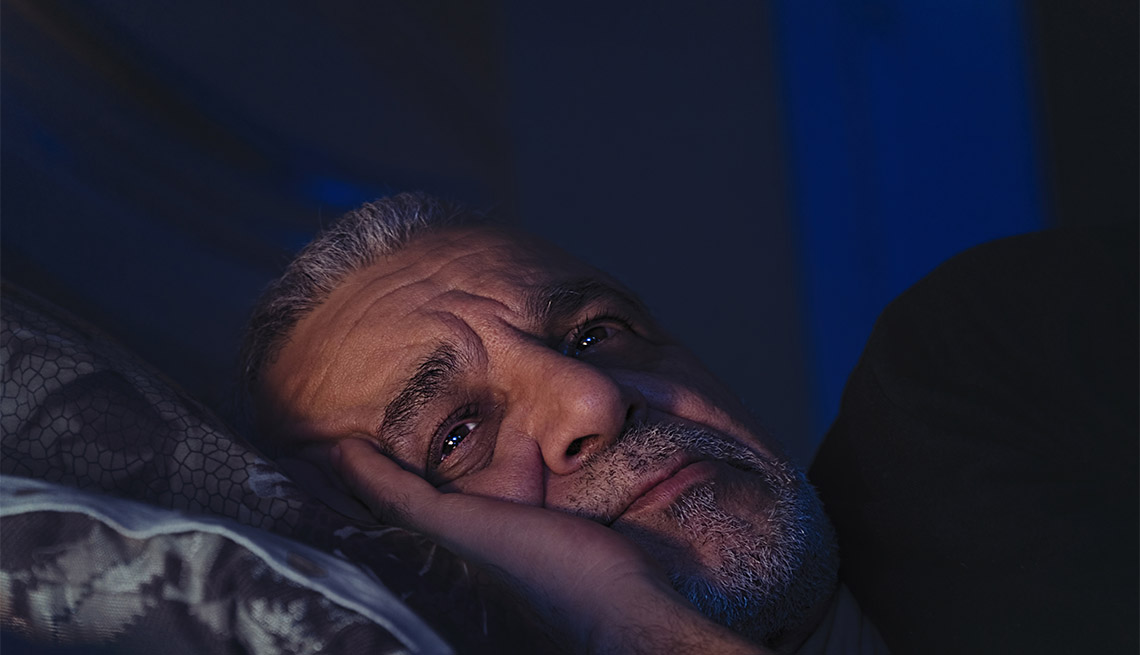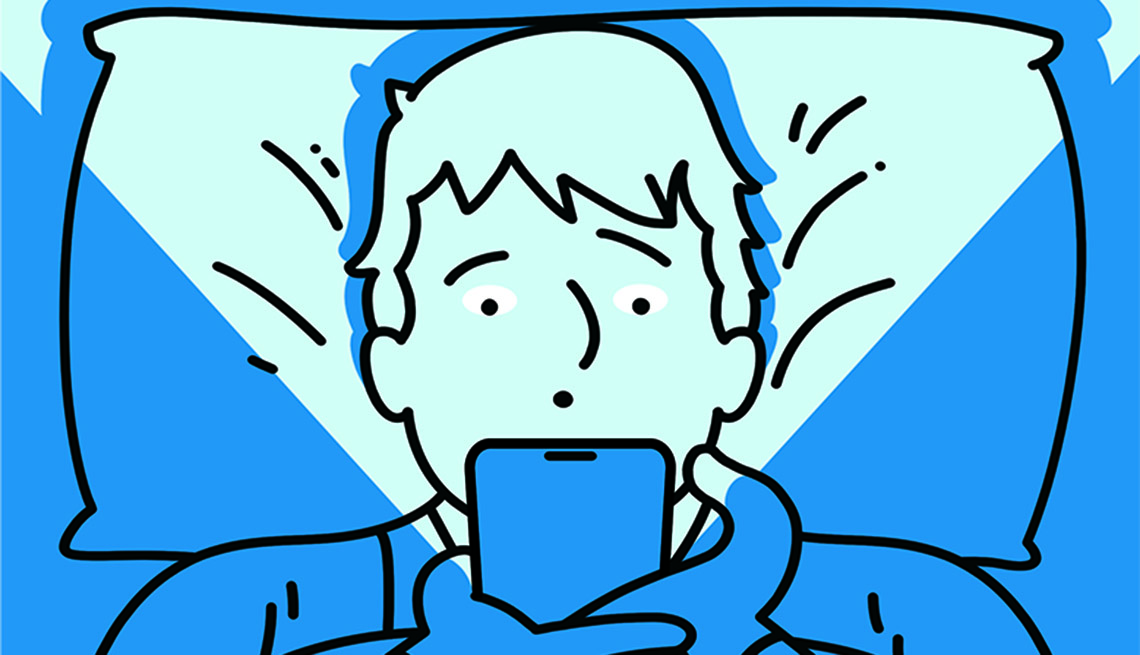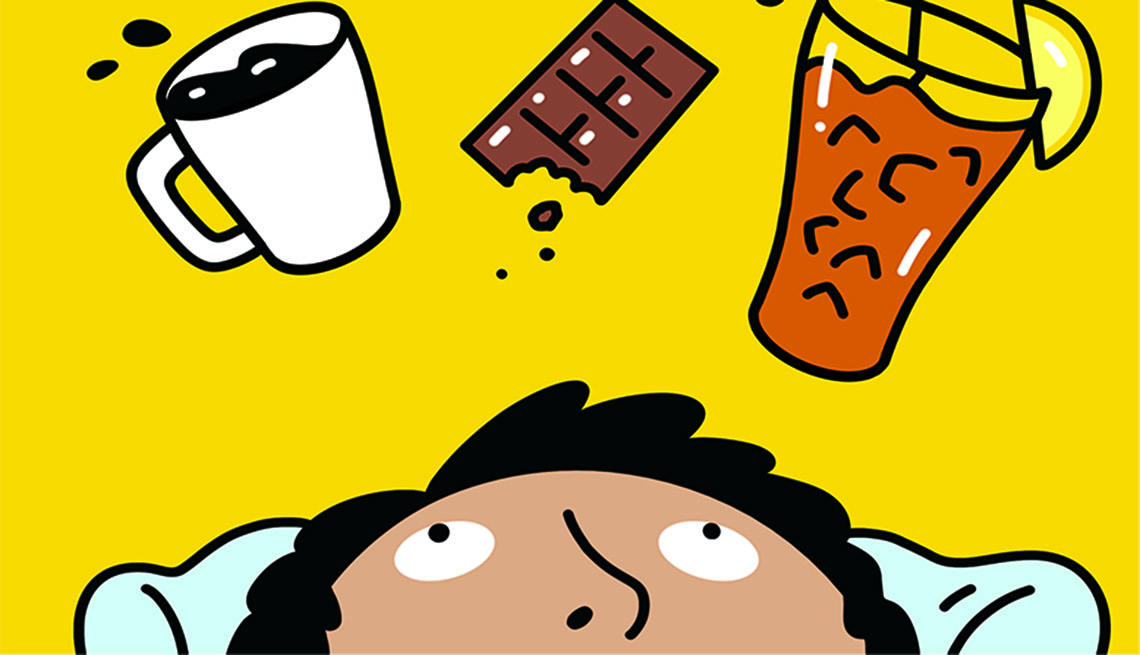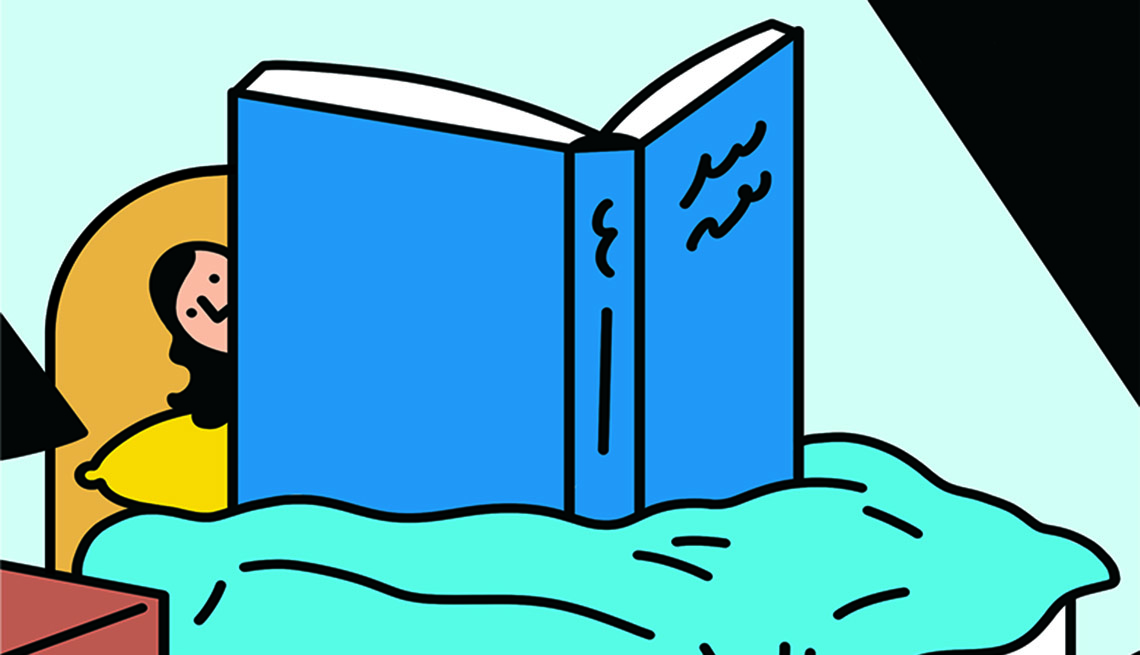How to Get a Man to Sleep With You Again Through Text

En español | Sleep. It's as elusive as leprechaun gold, and twice as valuable. The number of health conditions linked to poor or inadequate sleep is almost endless, with obesity, diabetes and heart disease topping the list. But sleep ought to be something we can control — just get to bed early and sleep the night away, right?
So, how come you're still so tired? The answer may surprise you. If you are not able to fall asleep, are waking up during the night or are just plain not feeling refreshed in the morning, see if one of these factors is souring your sweet dreams.

Sam Island
1. Blue-light insomnia
You've heard time and time again to turn off electronics an hour or so before bed because these devices emit a blue light that suppresses melatonin, a sleep-inducing hormone. However, glaring blue light even three or four hours earlier — like watching TV during or shortly after dinner — is enough to delay melatonin production, says Karl Doghramji, M.D., director of the Jefferson Sleep Disorders Center in Philadelphia. You don't have to turn off the tube, though.
He recommends wearing a pair of glasses that blocks blue light (available from a variety of online retailers) until you tuck in (and when you wake up at night, too). That way, you have no problems winding down with the TV on.
2. Menopausal insomnia
Declining estrogen can prompt disturbances — including hot flashes — in the middle of the night. Research indicates that about a quarter of menopausal women have sleep problems severe enough to impact their ability to function during the day.
Head off hot, sweaty wake-ups by using sheets and pajamas that wick moisture, and sleeping on a buckwheat pillow, which is more cooling than traditional latex or down, advises Shelby Harris, director of the behavioral sleep medicine program at Montefiore Medical Center in New York City. If your partner likes it warmer, consider having a separate comforter for each side of the bed.

3. Stealth caffeine insomnia
While it may be intuitive that drinking coffee for an afternoon pickup could interfere with your sleep later, "people often have no idea that they're consuming caffeine in other forms, like iced tea or chocolate," says Beth Ann Malow, M.D., director of the sleep disorders division of the Vanderbilt University Medical Center in Nashville, Tenn. Everyone metabolizes it at a different rate, so you may be surprised what time of day you should be cutting off caffeine. "If you're having trouble falling asleep, eliminate it after lunch," she says.
4. Free-wheelin' insomnia
"One positive among older adults is that they often feel as if they're under less stress," says Malow. However, that can mean schedules go out the window — and make the time you go to bed or wake up feel less important. But these times affect how your body releases melatonin later in the day. Maintain as close to a regular schedule as possible, even on weekends.
5. Nap insomnia
"Many adults don't nap voluntarily or intentionally, but often fall asleep when not busy or watching TV," says Doghramji. Either way, your brain sees it as sleep. The most common time of the day when people get sleepy is between 2 and 3 in the afternoon, when we experience a natural dip in energy, he says. This may prevent you from feeling tired at bedtime; then, spending too much time lying awake can contribute to insomnia. If your afternoon energy tends to be low, try scheduling something active for that time. It will help you feel refreshed, and research shows that exercisers have better sleep quality, too — so it's a double bang for your buck.

SAM ISLAND
6. Bed-confusion insomnia
Reading may be a relaxing activity, but you should take your book to an armchair — not your bed, Harris advises. "I prefer that the bed is only used for sleep and sex," she says. Even calm activities like puzzles or an adult coloring book can cause your brain to associate the bed with activities that you pursue while awake, which can affect your ability to drift off at night.
7. Alcohol-induced insomnia
Yep, a glass of vino can simmer you down and make it easier to fall asleep. However, research shows that while it may help you conk out, there's also a rebound effect that causes lighter and more fragmented sleep in the second half of the night; that's why you're up at 3 a.m. It also decreases sleep quality — so you rise less refreshed. Limit alcohol to three hours before bedtime and imbibe moderately (one drink for women and two for men, as recommended by the Centers for Disease Control and Prevention).
8. Prescription insomnia
Sleep can also be interrupted by poor timing of your medications. Some, like diuretics for blood pressure, can make you have to urinate more often. More than one or two bathroom breaks at night is abnormal, Doghramji says. Others, like antidepressant SSRIs, can either be energizing or sedating, depending what type you're on. Ask your doctor about the best time to take your meds to ensure they won't interfere with your bedtime.
9. Anxiety insomnia
You may be able to fall asleep just fine — that's thanks to "sleep pressure" that builds during the day to get you down at night, Doghramji says. But in the wee hours you may find yourself awake and staring at the ceiling, your mind spinning with worry. Your goal shouldn't be to stop worrying (via writing down thoughts and the like) in the middle of the night, but to address the root cause. Cognitive behavioral therapy for insomnia (CBT-I) can help you retrain your thoughts to diminish the speeding of your brain, he says. A specially trained CBT-I therapist can help, but there are also apps available that teach you these important skills. "Don't just use them at 3 a.m.; practice with these apps during the day," Doghramji says. If you do need to use them at night, make sure to set your smartphone to night setting so the light doesn't make you even more awake.
10. Bedroom-based insomnia
Lying in bed trying to force sleep to happen out of boredom backfires, Harris says. It can convince your brain that being awake in bed is normal. Instead, get up and go into a different room, and do something relaxing and calm in dim light, she advises. (No screens allowed.) Having an accepting mindset about it can also help. "Sleep will come when it comes. If not tonight, don't sleep in to compensate — and you'll likely sleep better the next night," she says.
11. Medical insomnia
"Insomnia is both a symptom and a disease," says Nathaniel Watson, M.D., codirector of the University of Washington Sleep Center, director of Harborview Sleep Clinic in Seattle, and advisory board member of SleepScore Labs. If you've improved your sleep habits (stick to a regular sleep schedule, avoid afternoon caffeine and so on) to no avail, your insomnia may be a symptom of another disease (such as depression or obstructive sleep apnea). If you've tried the advice above for a month and still aren't getting adequate sleep, see your doctor for an evaluation.
Source: https://www.aarp.org/health/conditions-treatments/info-2019/have-trouble-sleeping.html
0 Response to "How to Get a Man to Sleep With You Again Through Text"
Post a Comment